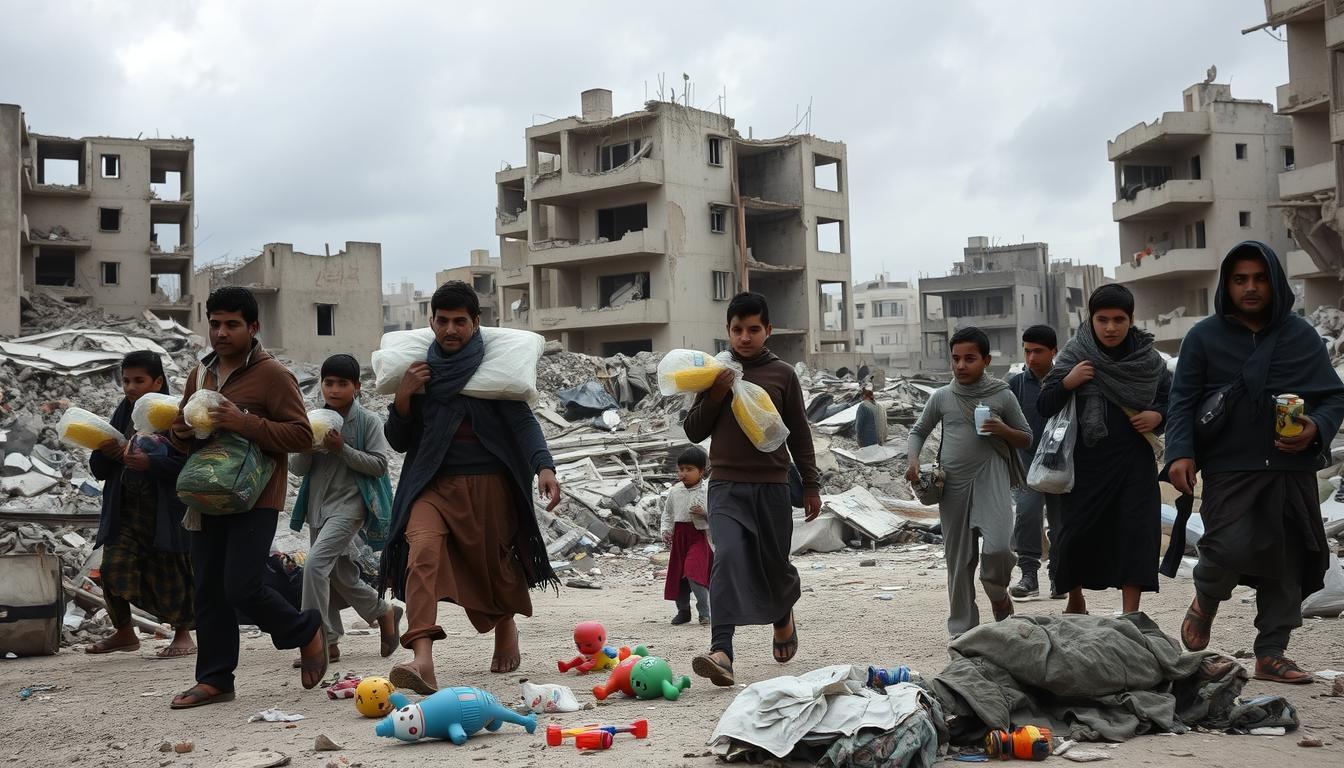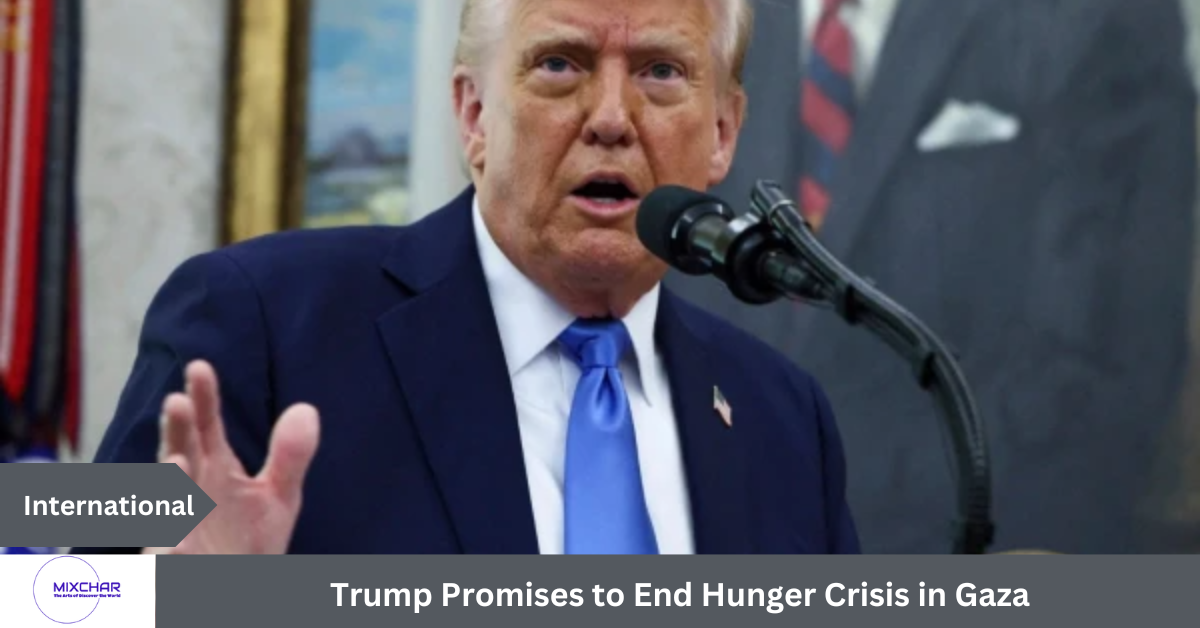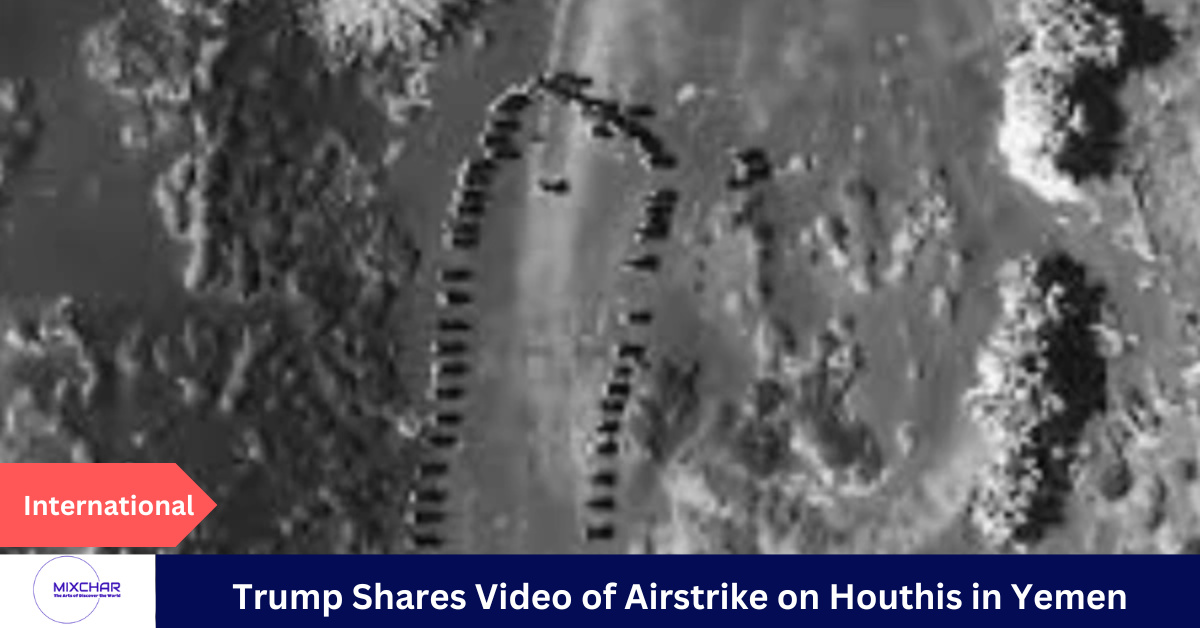Table of Contents
ToggleUN Secretary-General Antonio Guterres has once again called for an immediate ceasefire in the Gaza Strip. The escalating violence between Israel and Palestinian militant groups has caused a severe humanitarian crisis. This has prompted Guterres to urge all parties to show restraint and protect civilians above all.
Key Takeaways
- UN Secretary-General Antonio Guterres has called for an immediate ceasefire in the Gaza Strip.
- The conflict between Israel and Palestinian militants has resulted in a severe humanitarian crisis.
- Guterres has urged all parties to exercise restraint and prioritize civilian protection.
- The UN Security Council is expected to address the escalating violence in the region.
- Resolving the long-standing Israel-Palestine conflict remains a crucial challenge for the international community.
UN Chief Reiterates Demand for Immediate Ceasefire in Gaza
UN Secretary-General Antonio Guterres has issued a stern warning against the ongoing violence in Gaza. The air strikes and rocket fire have claimed many civilian lives, including children. Guterres urged all parties to stop the violence and seek dialogue, emphasizing the need to end the suffering.
Guterres’s call for an immediate ceasefire highlights the international community’s deepening concern. The UN chief reiterated demand for immediate ceasefire in Gaza underscores the urgent need to protect civilians. The humanitarian crisis in the region is worsening, prompting global alarm.
“The Gaza conflict and the broader Middle East peace process are at a critical juncture. The ceasefire negotiations must succeed, and all parties must work together to find a lasting solution that addresses the root causes of the conflict,” said Guterres.
The UN Security Council resolution condemning the violence remains unimplemented. This has heightened the urgency of the situation. Guterres urged all stakeholders to heed the calls for ceasefire and engage in meaningful dialogue. This is crucial for a sustainable peace process.
The Gaza conflict continues to escalate, focusing international efforts on a peaceful resolution. The UN chief’s statement is a powerful reminder of the urgent need for peace. It emphasizes the importance of protecting civilian lives and working towards lasting peace in the region.
Understanding the Gaza Conflict
The Gaza conflict has its roots in the longstanding tensions between Israel and Palestine. Recent clashes in Jerusalem and attempts to evict Palestinian families from Sheikh Jarrah have reignited the conflict. This has led to a surge in rocket attacks from Gaza and Israeli air strikes.
Historical Background
The conflict between Israel and Palestine began in the early 20th century, under the Ottoman Empire. After World War I, the British Mandate of Palestine was established, fueling the Zionist movement’s quest for a Jewish homeland. The 1948 Arab-Israeli war, the 1967 Six-Day War, and the First and Second Intifadas have all contributed to the ongoing violence.
Current Escalation
The recent violence in Gaza stems from a mix of political, social, and economic factors. Clashes in Jerusalem, including the potential eviction of Palestinian families, have been a catalyst. Hamas has responded with rocket attacks, prompting a significant Israeli military response.
The peace process in the Middle East has been stalled for years, with both sides struggling to find a solution. The current escalation has made the situation even more fragile, raising concerns about a broader conflict and its impact on Gaza’s people.
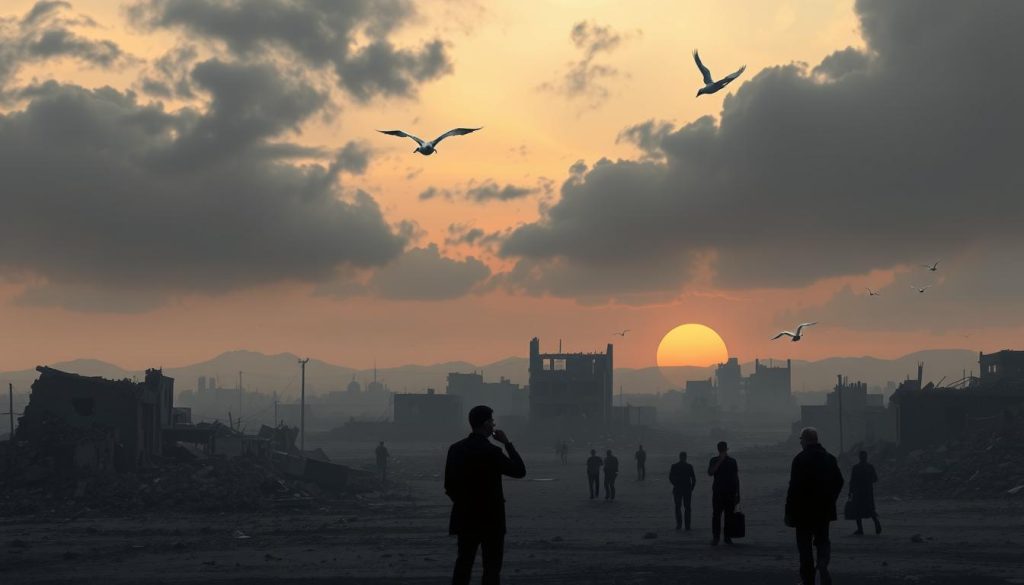
| Key Factors | Impact |
|---|---|
| Eviction attempts in Sheikh Jarrah | Sparked protests and clashes in Jerusalem |
| Rocket attacks from Gaza | Prompted Israeli military response, including air strikes |
| Stalled middle east peace process | Hindered efforts to find a lasting solution |
| Humanitarian crisis in gaza | Devastating impact on the civilian population |
The conflict in Gaza has had a devastating effect on civilians, exacerbating the humanitarian crisis. The international community is calling for an immediate ceasefire. Yet, finding a lasting peace remains elusive, highlighting the deep-rooted challenges of the Israel-Palestine conflict.
Middle East Peace Process at a Crossroads
The Israel-Palestine conflict has once again become a focal point, with recent ceasefire negotiations and the ongoing humanitarian crisis in Gaza revealing the middle east peace process‘s fragility. Despite years of efforts, the core issues remain complex and hard to resolve.
The recent violence highlights the need for a comprehensive solution that tackles the conflict’s root causes. Experts say the peace process is at a critical point, requiring innovative strategies to end the violence and secure a stable future for both sides.
Finding a mutually acceptable compromise on borders, settlements, security, and Jerusalem’s status has been a major hurdle. The Israel-Palestine conflict is further complicated by regional and global powers with their own interests.
The world is increasingly urgent about finding a diplomatic solution for lasting peace. The ceasefire negotiations and efforts to address the humanitarian crisis in Gaza are important steps. However, experts stress the need for a more sustained approach to end the cycle of violence.
“The path to a lasting peace in the Middle East is riddled with challenges, but it is a journey we must undertake with determination and a steadfast commitment to finding a just and equitable solution for all parties involved.”
The Israel-Palestine conflict poses significant challenges to the middle east peace process. The decisions made in the coming years will have profound implications for the region and the world.
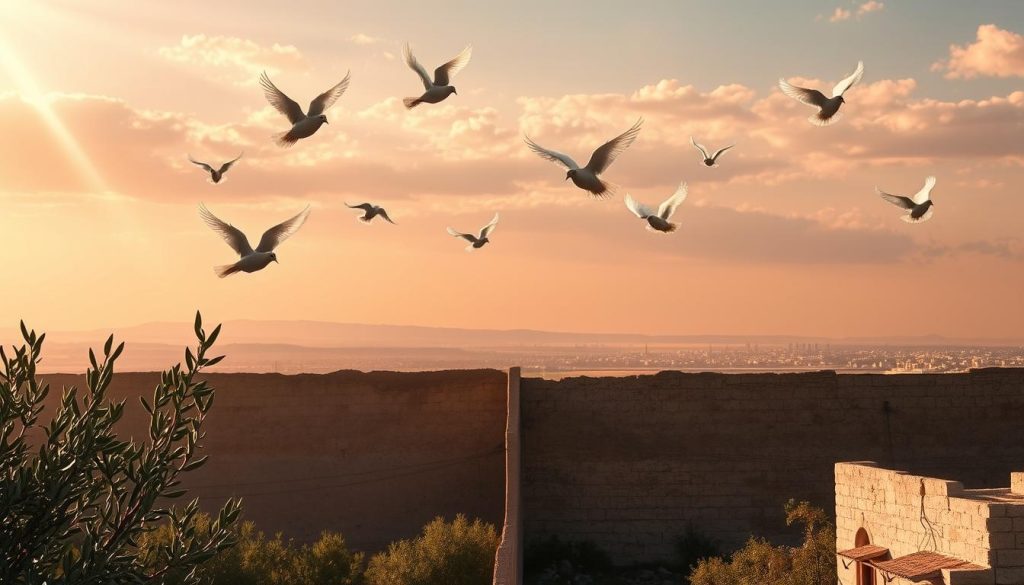
Israel-Palestine Conflict: A Perpetual Cycle
The conflict between Israel and Palestine is deeply complex, marked by a cycle of violence and mistrust. From Israel’s viewpoint, the main concern is the safety of its citizens. This leads to a strict stance on issues like the Gaza blockade and settlements in the West Bank. These measures are seen as crucial to safeguard against terrorist threats and maintain control over the area.
Israeli Perspective
For Israelis, the fear of rockets from Gaza and the risk of suicide bombings is ever-present. The Israeli government believes the blockade and military actions are vital. They aim to stop the flow of weapons and materials that could harm Israelis. Moreover, expanding settlements in the West Bank is viewed as a way to secure strategic territory and protect against threats from neighboring countries.
Palestinian Perspective
The Palestinian side sees the occupation and restrictions on movement and economic growth as the conflict’s core. They advocate for self-determination and an independent Palestinian state, with East Jerusalem as its capital. The dire humanitarian situation in Gaza, where most people live in poverty with limited access to basic services, intensifies feelings of injustice and a need for conflict resolution.
FAQ
What is the UN chief’s latest demand regarding the Gaza conflict?
UN Secretary-General Antonio Guterres has called for an immediate ceasefire in Gaza. He condemns the ongoing air strikes and rocket fire. These actions have resulted in the loss of many civilian lives.
What is the current humanitarian crisis in Gaza?
The violence between Israel and Palestinian militant groups has caused a severe humanitarian crisis in Gaza. The UN’s top official urges restraint. He emphasizes the need to protect civilians.
What is the historical background of the Gaza conflict?
The Gaza conflict’s roots are deeply historical, tied to ongoing tensions between Israel and Palestine. The recent escalation began with clashes in Jerusalem. It also involves eviction attempts of Palestinian families in Sheikh Jarrah.
What is the current status of the Middle East peace process?
The recent violence in Gaza has underscored the Middle East peace process’s fragility. The conflict between Israel and Palestine remains a significant challenge. Despite numerous attempts, a lasting peace agreement has yet to be achieved.
How do the Israeli and Palestinian perspectives differ on the conflict?
The conflict between Israel and Palestine is complex, with historical grievances and competing narratives. Israel prioritizes its citizens’ security, leading to a hardline stance on issues like the Gaza blockade and settlements. Palestinians see the occupation and restrictions as the conflict’s root cause, driving their desire for self-determination.
